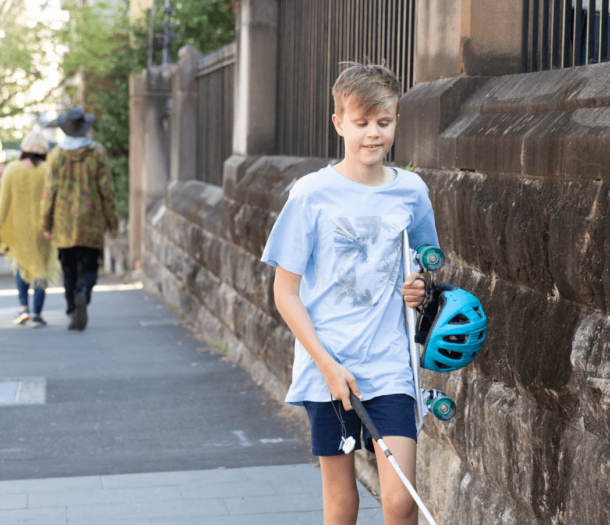On this page:
What is Occupational Therapy?
We’re here to assist you or someone you care about.
Occupational Therapy, often referred to as ‘OT’ enables people to undertake necessary tasks or activities they find meaningful with independence and confidence.
This can include personal care, caring for others, working, volunteering, using assistive technology, and participating in hobbies, activities and social events.
-
Download
Occupational Therapy digital booklet PDF
-
An accessible version of the document is also available for download here.
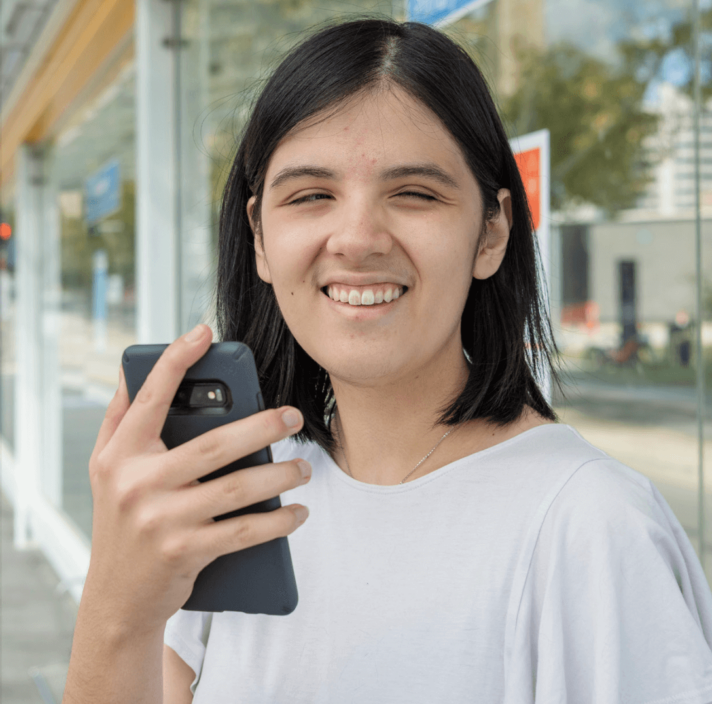
What can OT support help you with?
Working with our Occupational Therapists, you will identify personal goals and learn practical skills to achieve them.
These can include, but are certainly not limited to:
- Personal care skills: Showering, grooming, choosing an outfit, getting dressed, and managing medications.
- Household skills: Cooking, cleaning, making a cup of tea or coffee, doing the laundry or gardening.
- Tasks in the community: Withdrawing money from an ATM, signing documents, identifying and managing money or grocery shopping.
- Communicating with others: Using a phone, handwriting, presenting yourself confidently or learning to use other assistive technologies in day-to-day life.
- Your home setup: Adapt your home environment to meet your needs and explore gadgets for independence in all rooms.
Who can access OT services?
Regardless of your age, level of vision loss or prior OT support, we have services to help you achieve your goals, big and small, even if they change overtime.
If you need additional services, Guide Dogs SA/NT offers a broad range of support to cater for your needs. If you would like to learn more about these services, please contact our Client Support Team using the form at the bottom of this page.
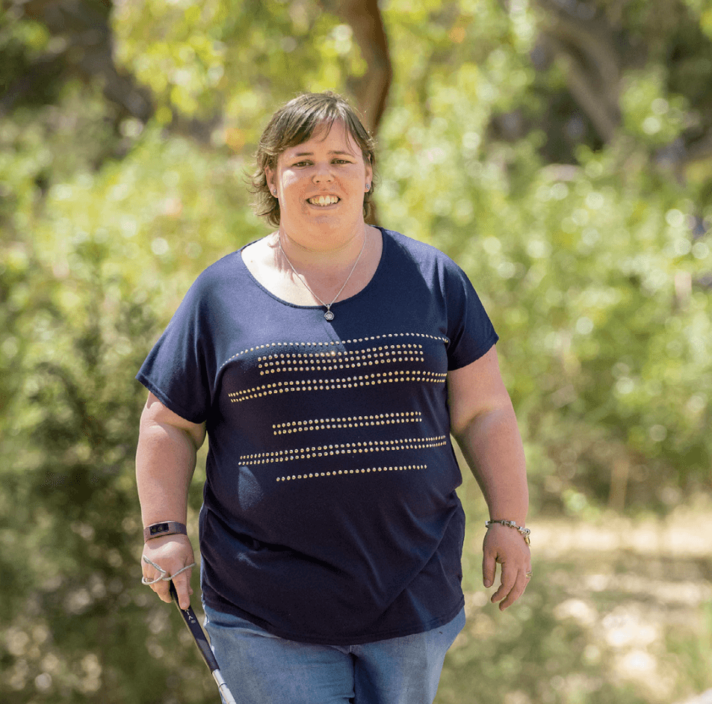
How is support tailored for your situation?
We tailor our services to suit your needs, whether it’s one or several sessions, or ongoing support.
‘Everyday life’ can mean something different for everyone. If you have a specific skill you would like to learn and add to your routine, we can create a personalised program that will help you master it.
Depending on your individual circumstances, services might take place in the hospital, at home, alongside family, with your wider support team, or out and about in the community.
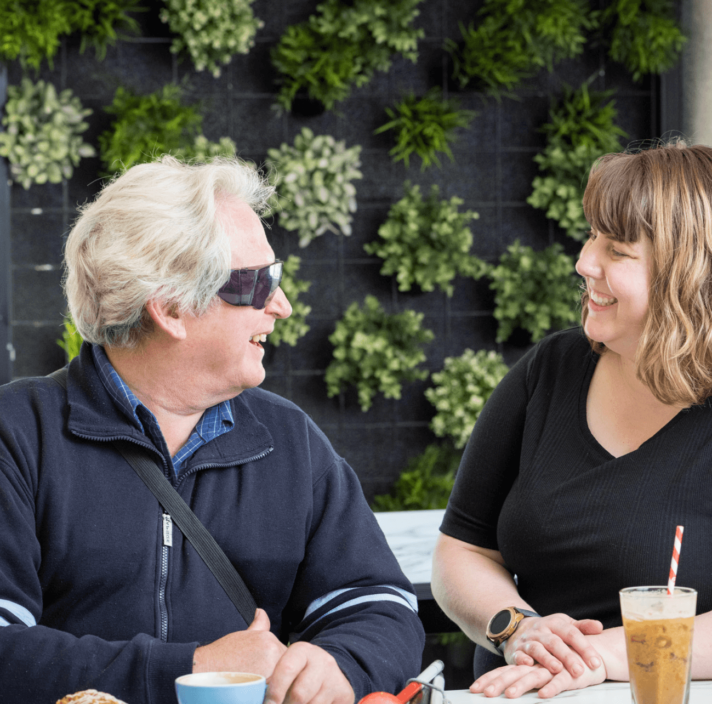
When should you enquire?
Don’t wait for a diagnosis to contact Guide Dogs SA/NT about how we can support you or someone you care about. If vision loss is impacting your daily life, reach out to our Client Support Team, who will help you take the next steps in your journey.
How do you make an enquiry?
To enquire about services or make a referral: fill in the form at the bottom of this page or get in touch using the contact details below.
- Call 1800 757 738
- Email support@guidedogs.org.au
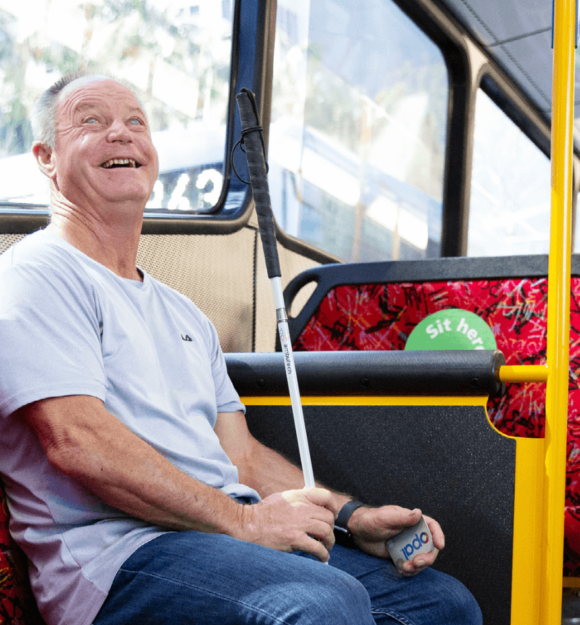
If you’re ready to make a referral, we welcome self-referrals or referrals from any health professional, carer, family member or friend. Please ensure you have the consent of the person you would like to refer before requesting services on their behalf.
Funding options
What funding is available?
You may be eligible or already receiving funding from a range of sources including, but not limited to:
- NDIS
- My Aged Care
- Children and Students with Disability (Department for Education)
- Department of Veterans’ Affair
Support for some of our services is also available through agreements with other support agencies, or our own charitable endeavours.
Request a service
Start the journey towards greater independence.
Referrals are welcomed from individuals, family members and health professionals.
The Guide Dogs SA/NT office will be closed 25 December – 1 January for the festive period, our client services team will respond to your message within 2 business days after the office reopens in the new year.
Ready to continue?
Seems like you have filled this form earlier. Let’s pick up where you left off.
